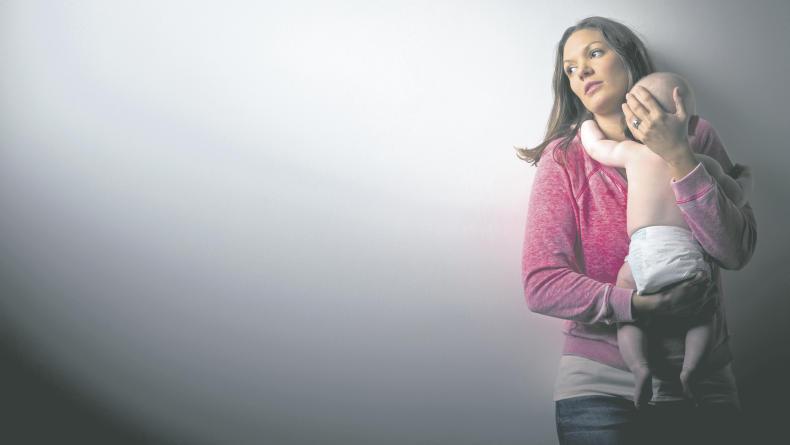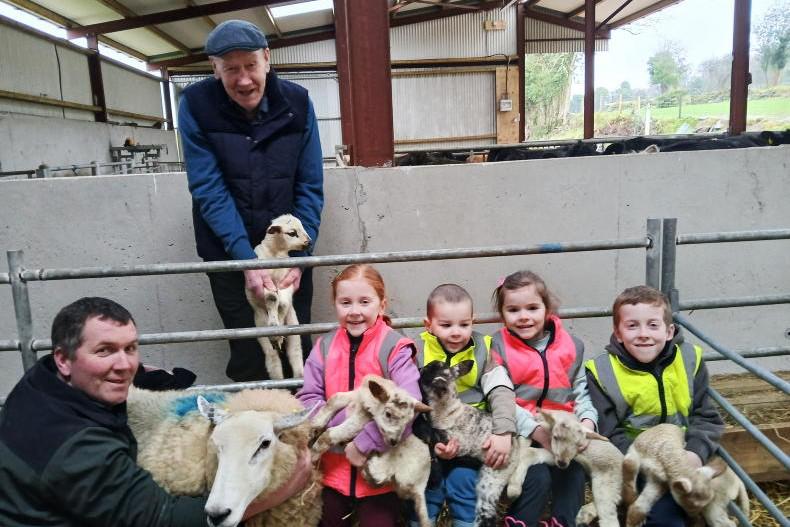Thinking about the past year gives me mixed feelings. We were overjoyed to welcome our third baby, we had a lovely summer with lots of visitors, we took a really nice holiday to the west of the country and my husband and I made great personal and professional achievements.
2017 was also probably the most difficult year of my life to date. I’m lucky, really, that this was my worst year – my family is happy, healthy and we have a (leaky, but still) roof over our heads. I know so many didn’t have things as easily as we did; I know many people spent their holiday season in hotel rooms or in shelters. These are the things I keep repeating to myself when self-pity threatens to take over my mood.
Postnatal depression is a weird thing. At first you try to convince yourself that you’re just tired. You don’t get enough sleep, you drink too much coffee, you get jittery and moody – it’s a vicious cycle. When my third baby was born, my husband was spending a lot of time on the farm and working his other job. It was calving season, then silage season. I spent a lot of time at home with three small children and few adults to converse with. I was healing physically from the birth and emotionally from hormonal shifts.
And my baby was a screamer. A real, belt-it-out screamer. The first night she was born, she screamed. Then, as newborns do, she fell asleep, most likely exhausted from being born, but even then she was restless – tossing and turning, grunting and coughing.
And honestly, I think that was the best sleep she’s ever had, even eight months on.
From the day I arrived home, this baby would not, could not, be put down. She couldn’t be calmed. She wouldn’t sleep. We had a new bassinet that was never used. She would only ever sleep in her car seat, something that is not recommended but what can you do if your baby won’t sleep anywhere else?
I spent night after night rocking, shushing, using all the white noise apps on my phone I could find, nursing. I tried her with a bottle, we tried anti-colic drops and eventually put her on anti-reflux medication. Nothing helped, really! She hated the car, she hated the swing, she hated her father, my mother, her aunties. I had no one to take the baby to give me a break.
I would hold her at night until I found myself falling asleep sitting upright, then I would gingerly transfer her to the car seat where she would sleep anywhere from 10 minutes to two hours. This was how our days and nights would go. I was cracking.
I realised something was wrong when I started shouting. We all shout at our kids from time to time, but I would find myself screaming at my two other children for minor lapses in behaviour. I would shout at the baby. I would shout at my husband. I would go into another room when I’d had enough and scream into my pillow. I didn’t know rage was a symptom of postnatal depression, but I knew, as a generally mild-tempered person, it wasn’t right for me to feel this way either.
I felt like a terrible mother. I felt like I’d failed. We had assumed we had raising babies down to a science. I never anticipated having a severely colicky baby. I never anticipated the extreme isolation and loneliness that I would feel since I was never really alone. I certainly never anticipated the blood-curdling rage.
Now we’re into 2018 and I’m still not great. The baby calmed down, as colicky babies do, at four months. She cries a lot less now, and is at that stage where I can leave her for a few minutes to play with her toys on the carpet or in her bouncer. This helps greatly, but not completely.
My baby is still considered very “high needs”. She needs to be fed promptly, held constantly and barely naps. She sleeps well at night, but only because she sleeps right next to me, in my bed, with my hand on her chest. If I don’t respond to her needs right away, she loses the plot.
Writing has been my solace. It really helps me to put my feelings down on paper. It helps to be honest with myself, to talk openly about how I’m feeling to my friends and husband. Medication was never going to be an option for me, but it is a wonderfully viable option for many women suffering from postnatal depression. Counselling is equally great and you can find a support group in nearly every community in Ireland. Exercise has helped me too – it gives off a great rush of oxytocin and, if I have a good run or work-out at night, it carries me through the next day.
My husband has done his share as well, giving me lie-ins, spending time with the two older kids (with extra love and cuddles) and, eventually, being able to hold and rock the baby while I take time for myself in the evenings has been an indispensable gift. He’s not “helping” as many might say; he’s just doing his bit at parenting. We’re all just doing our bit, really.
Which leads me to my new year’s non-resolution. I am going to stop being so hard on myself. I’m going to try to spend less time worrying and more time loving my family. I’m going to go running more often and take my kids to the seaside. I’m going to treat myself and my husband to a nice weekend away. Slowly, I will get better and I hope other women suffering from postnatal depression know this about themselves too. CL









SHARING OPTIONS